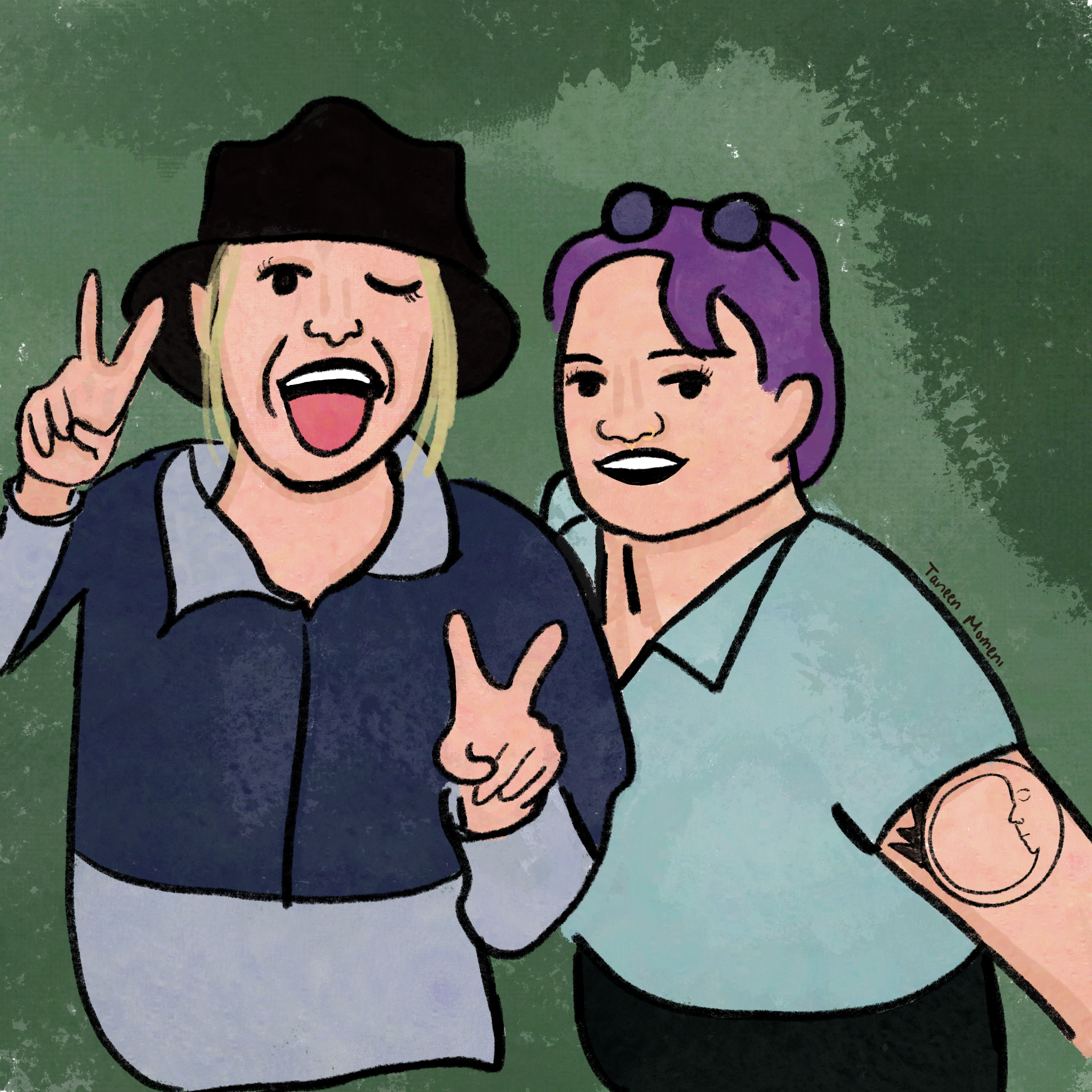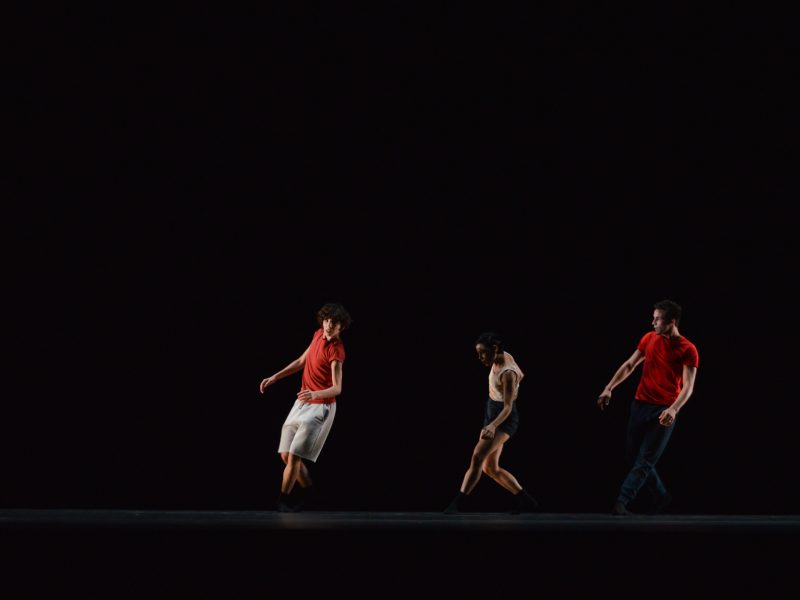Trotting downstairs for breakfast often meant Sophia Andersen finding the wheels of an elliptical turning in the living room. Andersen, a civil engineering graduate exchange student from Denmark who studied at the University of Maryland last fall, always knew it was her father at the pedals.
Andersen’s father, Mads Andersen, mitigated his depression with physical exercise, cycling roughly 62 miles weekly.
“I think this theory about endorphins is right,” Mads Andersen said, referring to how physical activity can increase the production of the brain’s feel-good neurotransmitters.
Having experienced an anxiety attack, Mads Andersen turned to exercise, including yoga, to better manage his time and health as well as make him less vulnerable to stress.
Mads Andersen’s family has a history of both bipolar disorder and depression but Sophia Andersen’s family didn’t label her father’s depression at home until recent years, referring to it instead as his “fragile mind,” despite mental health not being a stigmatized topic in Denmark.
From flair-ups with friends to lifelong depressive episodes and struggles to find a diagnosis, both Sophia Andersen and her sister Katharina Andersen have sought mental health support. The sisters used Denmark’s health care system to find help.
While Denmark is known as one of the happiest countries in the world, about eight percent of the Danish population experiences depression and 15 percent of all schoolchildren have received treatment for mental health issues, according to Healthcare Denmark.
But since the COVID-19 pandemic, more young people have requested help from a mental health professional, Sophia Andersen said.
Denmark held several lockdowns at the beginning of the pandemic, leading the charge as one of the first European countries to restrict public gatherings and close schools.
[Mental health stories beyond UMD: International students discuss mental health experiences]
Yet the quick shift to isolation showed many in Denmark how important staying active and socializing is for mental wellness, according to Line Nielsen, a postdoctoral researcher at the University of Copenhagen’s psychology department. But conversations about physical and mental health often remain separate despite their effects on each other.
“Some of the things you might do to promote your physical health, like go for a walk or get enough sleep or something like this, actually also benefits our mental health,” Nielsen said.
Seeking help for mental health is similar to visiting a general practitioner for a physical ailment in Denmark. Sophia Andersen navigated the mental health care system herself a few years ago after ending a close friendship.
Sophia Andersen, whose primary physician referred her to a psychologist, didn’t have to pay for the care she received. Danish residents receive free and equal access to treatment, diagnosis and choice of hospital for mental health care under the universal health care system.
Danes have had the right to a diagnostic psychiatric assessment within a month of referral since 2014. Treatment commences within two months for less serious conditions or one month for more serious conditions with walk-in locations for acute psychiatric care in all regions, according to the Commonwealth Fund.
Sophia Andersen went to the psychologist weekly for roughly two months, and then her psychologist decided it was time to stop, given her progress.
But not every mental health issue is situational and resolved as quick.
Katharina Andersen, had dealt with depression for most of her life. Since her family never labeled those feelings as depression, she cast them off as “bad moods” she couldn’t handle.
Before starting university, Katharina Andersen sought help from a psychologist her friend recommended. She said the psychologist claimed that since nothing was wrong with her relationship with her family, nothing was wrong with her mental state either.
“If a psychologist can’t see any problems with me, then it must really be me who is just bad … that there wasn’t really anything specifically, literally wrong with me,” Katharina Andersen said. “[But] I could feel like it was not normal.”
Unsettled about her mental health, she reached out to Headspace, a free Danish program that offers fully anonymous chat sessions to people between the ages of 12 and 25 years old.
Residents can reach out with family struggles or less serious mental health issues, but the operators are volunteers who can’t provide professional grade assistance, Katharina Andersen said.
“The girl I was talking to was saying to me that my problems were a bit more severe than what they were doing, so they couldn’t really help me,” she added.
[She asked for help. U.S. public high school counseling fell short.]
Still fighting to understand why she struggled with mental breakdowns, Katharina Andersen went to a spiritual guide whose emotional support let her openly talk about her feelings. But this still didn’t fix the disruptive episodes she would soon find out to be the root of some of her problems.
She went to her physician — just as her sister did — and was referred to a psychiatrist to discuss how medication may reduce some of her disruptive, depressive episodes.
A psychiatrist diagnosed her with Attention-Deficit/Hyperactivity Disorder and emotional instability, but it took about a year to find the best medication dosage for her.
“I could feel a massive, massive difference when starting the meds,” she said. “I tried different kinds of ADHD meds and different kinds of dosage because I really wanted something that would help with my emotional instability.”
Since then, Katharina Andersen started visiting a therapist and her depressive episodes have subsided.
“I’m still trying to figure out how to live with ADHD, but I feel like the depression is not really that big a deal anymore,” she said. “I don’t go into those slumps anymore because I’m learning how to manage it beforehand.”
Katharina Andersen will have to live with her fluctuating emotions for the rest of her life, her father noted.
“It’s [a] weakness and strength, and there’s a plus and a minus side,” Mads Andersen said. “You don’t get a pill and that’s that, and then you’re cured.”
Danish politicians have since recognized the lack of attention to mental health during the height of COVID-19, Sophia Andersen said. But proactive measures rather than solely preventative practices are currently at the center of mental health initiatives.
The ABCs of Mental Health — the first research-based public mental health promotion initiative in Denmark led by the psychology department at the University of Copenhagen — is one program working to change Danes’ perceptions of how to address mental health, according to Nielsen.
“Most people would think that it’s more [important] to put money into prevention or to put money into treatment because we need to help the people that need help,” Nielsen added. “Of course, we need to do that. It’s just that we see this mental health promotion as a supplement that’s really necessary.”
The ABCs of Mental Health is inspired by the Act-Belong-Commit mental health initiative developed in Australia as a means to strengthen mental health and shield young people from extreme depression or anxiety when they encounter difficult periods of life.
The campaign encourages staying socially, mentally, spiritually and physically active, engaging in an act with someone else to develop a sense of identity through community activities and extending those tasks to something meaningful, such as supporting a cause that provides purpose.
Although the initiative aims to strengthen and promote the use of practices within yourself, Nielsen also stresses seeking help from surrounding resources.
“Mental well-being is not a permanent state, it’s something that goes up and down during life, and that’s completely normal,” Nielsen said. “When you experience a tough period of life, you need some resources to drag you back into a more pleasant state.”



